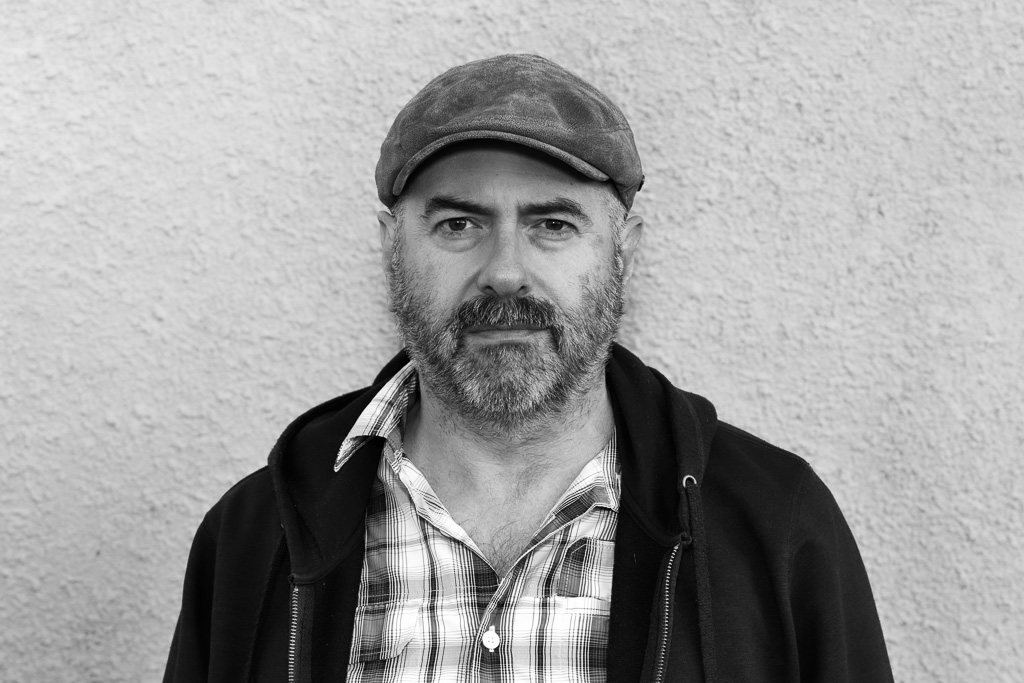During the pandemic, Dave had let things go, sprouting a salt and pepper stubble on his face and wearing a “Peaky Blinders” cap to hide the sparse growth on his scalp. Ordinarily, Dave would shave his head to the smooth sheen of a cue ball. But there was something about the pandemic that sapped his will. These days, he saw no point keeping up his appearance. He lounged on his deck in the early morning light, taking in all the glorious songs of suburbia, the lawn mowers, the gas-powered grass whackers, the soccer moms yelling at their snot-nosed children to get into the friggin van, while his dog poked around in the shrubs at the far end of the yard.
Still in her pyjamas and housecoat, Dave’s wife stepped onto the deck and informed him that there was a stranger asking for him at the front door. Dave asked for details, but his wife had nothing more to offer. He dropped his newspaper on the low side table and rose from his deck chair, abandoning a cup of coffee while he ambled around the side of the house.
Dave approached from the west and the man stood on the front porch with the rising sun behind him, and while the effect was dramatic, suggesting a messianic glare, it made it impossible for Dave to discern anything more about the man except his shining outline. The man called to him by name, a question, and even as Dave answered that, yes, his name was Dave Barker, and shook the man’s hand, he couldn’t see enough detail to say if he knew the man.
— Sorry, you have me at a disadvantage. Dave shaded his eyes while looking up at the man.
— Ah, the insufferable glare. The man leaned down from the porch and offered a hand and announced that he was Richard Garfield, the story’s Black character.
— Huh? Dave might have offered something more articulate had he finished the cup of coffee that was growing cold beside his newspaper.
— And you must be that shallow stand-in for the Author, pathetic for the fact that the character you’ve written for yourself is so utterly one-dimensional that we have no choice but to assume the absolute worst of the person you represent. Simple. Transparent. Banal.
— You’re Black?
— Jesus Christ in a bat cave! You’re the one who wrote me.
— It’s hard to tell from where I’m standing. Morning light. Retinal afterimages.
There was a pause as Dave struggled to navigate the social niceties of the situation. Should he step up to join Richard on the porch? Or should he stick to his mark and draw Richard down onto the lawn? Richard appeared to struggle with the same questions, settling at last on a compromise. The man gave a nervous cough and, descending by two steps, proffered a manila envelope.
— This is a letter from my lawyer. A demand really. That you cease and desist, you know, from representing characters in your stories, Black or otherwise, who don’t share the historical experience of your personal identity. White. Colonizing. Cisgendered. Privileged. You know. That stuff. And let me say, our encounter this morning only confirms that this is the right course. I mean, if the best you can manage by way of self-representation is, quite frankly, a dull cardboard white bread mealy-mouthed version of yourself, then how can you be expected to offer full-bodied representations of people who aren’t the least bit like you? You have no business putting Black characters in your stories.
Dave wasn’t sure what to say. He stood in the morning light, turning the envelope over and over, letting his housecoat fall open to reveal an embarrassing hole in his pyjama bottoms. He wondered what his dog had found in the far corner of the yard. Last weekend it was rats in the composter. The weekend before it was the remains of a dead raccoon.
Without taking the risk of writing anything further about the Black character, Dave ambled back around the west side of the house and returned to the deck and the newspaper and the cold cup of coffee. His wife brought him a fresh cup and asked what the stranger had wanted, and after he’d explained and after he’d shown her the cease and desist letter, she observed: if you take this demand to its logical conclusion, then fiction becomes impossible; at best, all stories end up as thinly disguised autobiography.
— Maybe it’s a temporary thing, Dave said. A moratorium. Until we can to treat one another with more respect.
— How long do you think that’ll take?
Dave sipped his coffee and shrugged.
— Not in my lifetime, hon. That’s for goddam sure.
He folded the pages of this story and set it aside, unsure what to make of it.
